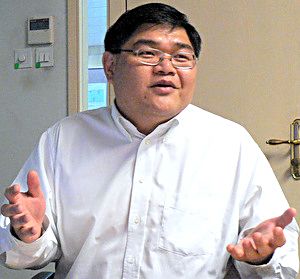
SINGAPORE’S NO.1 manufacturer of metal pail containers, Superior Multi-Packaging, produces for Nippon Paint, and is gearing up to be a big player in China.
Over the past 3 decades, Superior has acquired an estimated 90% share of Singapore’s market for metal pails and cans used in the paint, oil, petrochemical and marine industries.
Its other businesses include flexible packaging materials (used to pack instant coffee, for example) and the manufacture, fabrication and sale of stainless steel products.
Superior (www.smpl.com.sg) is seizing opportunities in China for more growth, where its largest customer, Nippon Paint, is expanding aggressively.
China contributed 47% of Superior's revenue in FY09. Several years ago, Nippon Paint had accounted for over 90% of its China business, but Superior is fast gaining more customers.
(Singapore accounted for 48.8% of FY09 revenues while Vietnam and the Philippines accounted for the remaining 4.2%.)
|
Superior's FY09 net earnings stood at S$2.3 million, up 13% year-on-year.
It is associated with big names. It is 40%-held by the billion-dollar conglomerate Wuthelam, which also owns a significant stake in Nippon Paint, one of Asia’s leading paint manufacturers.
A Wuthelam director, Mr Goh Hup Jin, sits on the board of directors for both Nippon Paint as well as Superior.
Superior's board of directors also boasts other illustrious names such as Prof Tan Chin Tiong, one of the founding members of the Singapore Management University. Prof Tan is its non-executive chairman.

Not only does the strong management team translate to stronger corporate governance and sounder strategic direction, it also opens doors to customers.
For example, Superior has the largest share to Nippon Paint's supplies of metal pails in China.
Superior now has about 10% of China’s metal pail market, according to the management’s estimates.
”We will gain pricing power when we double our market share in China,” said Mr Wang Gee Hock, its CEO, in an interview with NextInsight. ”We are targeting half of our China revenues from outside the group by this year."
Its customers are big names like Dupont. The advantage of big-name customers is that Superior encounters no bad debts, but the downside is that credit terms are up to 90 days.
Superior pays cash-on-delivery to suppliers of petroleum resin for feedstock. That, plus a one-month production cycle, add up to a cash conversion cycle of as high as 4 months.
|
This translates into high working capital requirements. That’s why the company wants to raise up to S$10.9 million in a one-for-one rights issue at 5.5 cents per share.
Based on stock price of 12.5 cents per share, the issue price is a 38.9% discount to the theoretical ex rights price.
The issue proceeds will be used to build satellite factories in northern China, as well as provide working capital for the new factories.
There are several operational advantages of its expansion plan:
|
In March this year, it acquired its second tinplate printing facility in the Zhejiang province of China for Rmb 8.8 million (S$1.8 million). The new facility comes with Japanese printing and coating machinery less than 3 years old.
With the acquisition, its operating units in east, south and south-west China will no longer be dependent on local tinplate printers to satisfy their customized printing needs.
This translates into cost savings, faster turn-around time and printing schedule flexibility, which in turn affects overall profitability.
It already owns a tinplate printing facility in the north (Langfang in the Hebei province) and expects to have a total of 11 operating units in China by year end.




